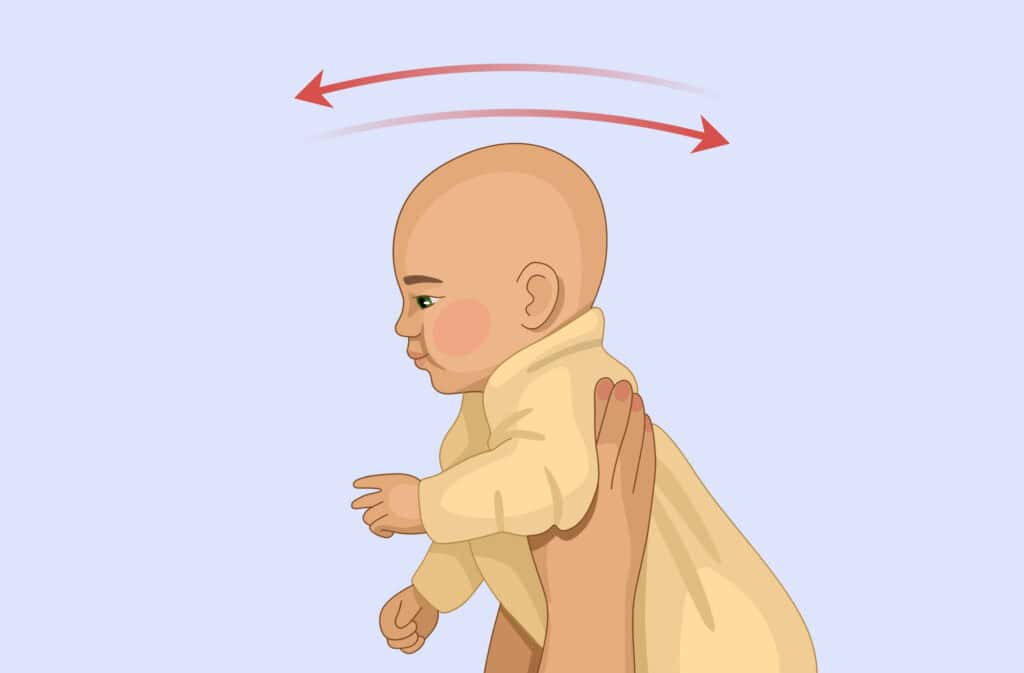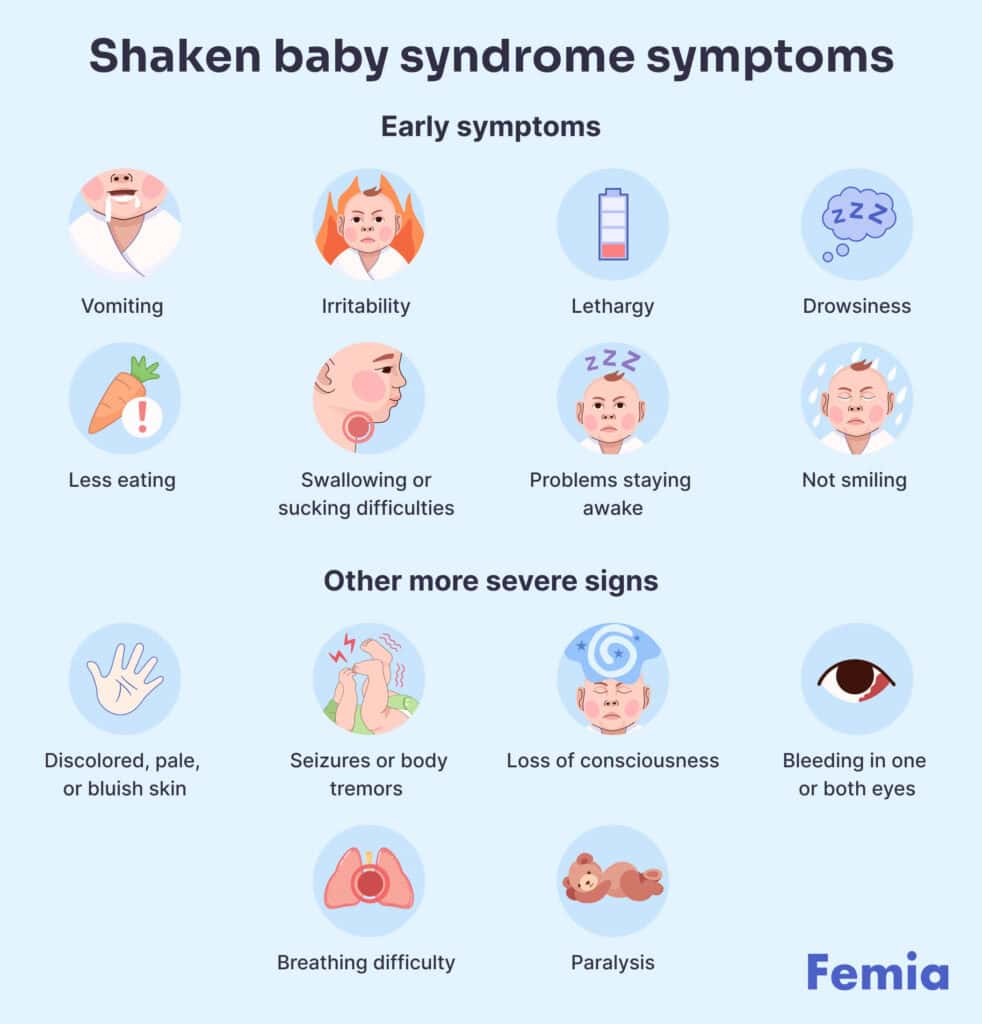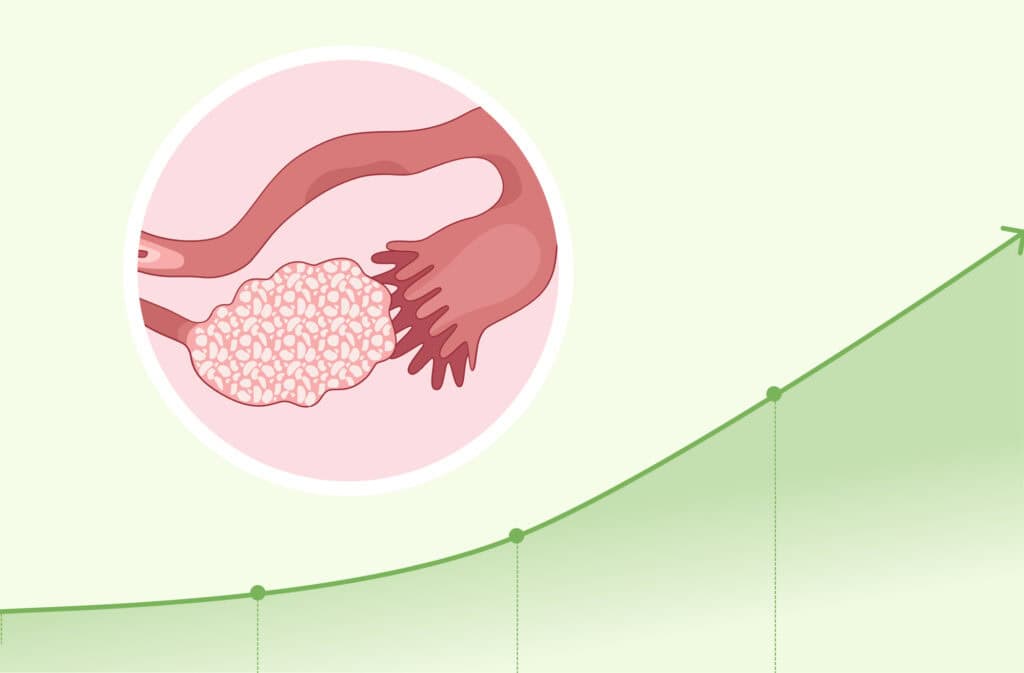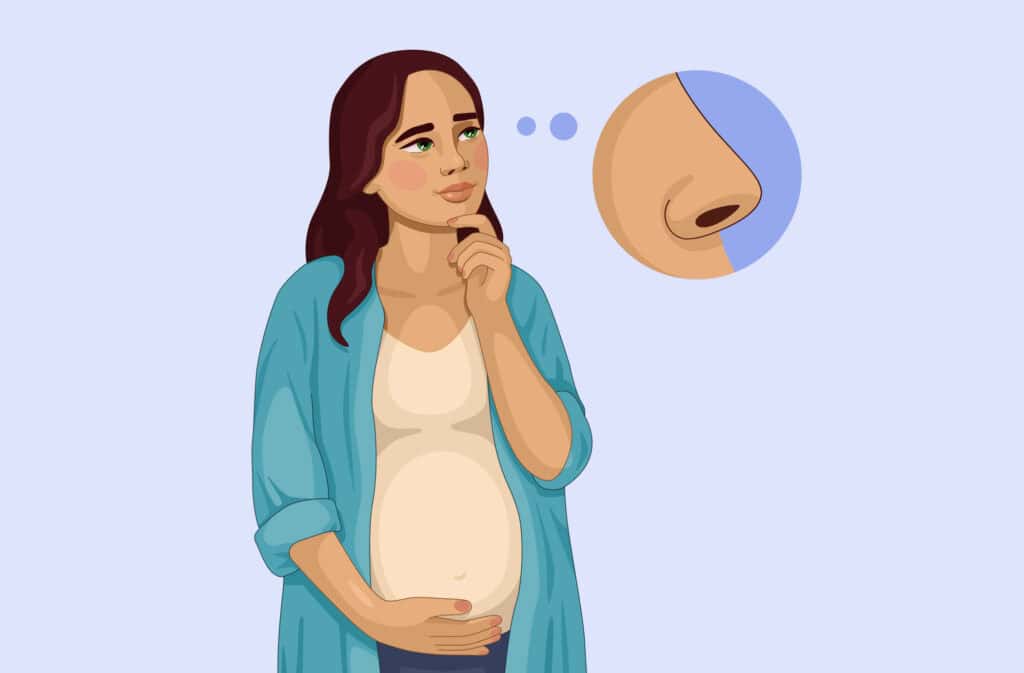Femia > Health Library > Being a mom > Raising a baby > Shaken baby syndrome: Understanding the causes, symptoms, and prevention
Shaken baby syndrome: Understanding the causes, symptoms, and prevention

- Updated Feb 10, 2025
- Published
CRAFTED BY HUMAN
Crafted by human At Femia, we provide accurate and up-to-date information at every stage of your journey, from trying to conceive, pregnancy and postnatal support. All content is created by a real person based on in-depth research and own professional experience. Femia ensures that you will receive expert advice, strict accuracy and a personalized approach from our authors/medical experts. Learn more about our editorial policy.
FACT CHECKED
Fact checked At Femia Health, we maintain the highest standards of editorial excellence in delivering content focused on helping you conceive, guiding you through pregnancy, and supporting you postpartum. Explore our content review principles to learn how we ensure the accuracy and quality of our health and lifestyle tips for every stage of your journey.
- Shaken baby syndrome is a brain injury that occurs in infants and toddlers below 2-5 years of age.
- It happens when an infant has been violently shaken. Shaking an infant can damage their brain cells, as babies have fragile, developing heads supported by weak neck muscles.
- Some warning signs of shaken baby syndrome include blue-colored or pale skin, extreme irritability, seizures, and unconsciousness.
Shaken baby syndrome or abusive head trauma is one of the most common causes of traumatic death in children younger than 2 years of age. It can also cause bleeding, bruising, or swelling in the brain.
It has been estimated by the National Center for Shaken Baby Syndrome that nearly 1,400 kids die or are injured by shaken baby syndrome each year in the USA.
Parents should never vigorously shake their infants or otherwise abuse them regardless of how frustrated or angry they feel, as even briefly shaking one’s infant can lead to long-term damage, disabilities, or even death. So, let’s discuss the signs of shaken baby syndrome, SBS symptoms, and how shaken baby syndrome happens in detail.
Femia helps you understand your symptoms and when to take action
What is shaken baby syndrome?
So, what is shaken baby syndrome? Shaken baby syndrome, also called abusive head trauma, is a brain injury that occurs from violently shaking an infant or toddler. It damages their brain cells and restricts them from getting enough oxygen.
An infant’s brain is highly fragile. Babies’ still-developing neck muscles are weak and aren’t able to support the weight of their heads properly. . The sensitive growing period of an infant’s head makes it prone to traumatic brain injuries.
The rapid shaking of a baby can generally damage brain tissue and blood vessels much faster than a shortfall or a bump to the head.
Moreover, shaken baby syndrome can cause various complications and injuries, including:
- Rib fractures
- Long bone fractures
- Skull fractures
- Retinal hemorrhages
- Subdural hematoma
- Cerebral edema
It’s worth noting that babies’ head shapes can sometimes be uneven due to their soft skulls. This is something that resolves over time and doesn’t necessarily mean a child has shaken baby syndrome.
👉Find out more: Signs of ovulation after giving birth: What new moms need to know
What causes shaken baby syndrome?
Shaken baby syndrome happens when the baby’s parent or caregiver violently shakes them. This abusive behavior can happen out of frustration or anger, for example, if a baby is continuously screaming or doesn’t stop crying and the parent doesn’t control their emotions.
An infant’s head is large relative to its body and quite unstable. In addition, an infant’s brain contains more water than adults, increasing the chances of acceleration-deceleration injuries.
Can bouncing a baby cause shaken baby syndrome?
So, can bouncing a baby cause shaken baby syndrome? The answer is no. Light bouncing or playful activities with the baby do not cause shaken baby syndrome.
Only when you shake, sway, or toss the baby’s neck side to side or back and forth with some force can it lead to injuries or shaken baby syndrome. However, minor or jiggly motion is perfectly safe for your baby, but it should be done gently and without force.
How does shaken baby syndrome happen?
Shaken baby syndrome happens from forceful, repeated, or violent shaking of the baby, which may be done intentionally or unintentionally by the baby’s caregiver due to frustration, irritability, or anger. It can cause bruising, bleeding, or swelling in the brain tissue or surrounding spaces, leading to mild to severe injuries.
Mild to moderate injuries from shaken baby syndrome include:
- Behavioral changes
- Temporary cognitive impairment
Severe injuries from shaken baby syndrome include:
- Seizures
- Coma
- Permanent brain damage
- Delays in brain development
Everyday activities, like soft, intermittent, non-violent playful movement or interaction with the baby or controlled gentle motion, are generally safe and do not cause shaken baby syndrome.
Shaken baby syndrome symptoms

Early shaken baby syndrome symptoms include:
- Vomiting
- Irritability
- Lethargy
- Drowsiness
- Less eating
- Swallowing or sucking difficulties
- Problems staying awake
- Not smiling
Other more severe signs of baby shaken syndrome include:
- Discolored, pale, or bluish skin
- Seizures or body tremors
- Bleeding in one or both eyes
- Breathing difficulty
- Loss of consciousness
- Paralysis
👉Find out more: Premature baby development week by week: What to expect from birth onward
When to proceed to the doctor
It is advisable to consult your doctor immediately if your baby shows severe SBS symptoms, particularly loss of consciousness, seizures, difficulty breathing, bleeding or discolored skin. If severe symptoms are immediately addressed and treated, there may be a chance to prevent long-term damage or injury to your baby’s brain and body. If you feel that your baby is showing symptoms of shaken baby syndrome you should consult your doctor as soon as possible.
Prevention and awareness of shaken baby syndrome
Feeling overwhelmed and frustrated is natural when you have to take care of a newborn baby or toddler 24/7, especially if no one is around to help you. However, caring for your own physical and mental health is equally essential so you have the energy and stamina to look after your baby.
Here are some significant things you should avoid doing with your newborn or infant to prevent any health damage or injuries to your baby:
1. Don't throw or toss your baby in the air
People sometimes toss their babies in the air to have fun with them. But this can be dangerous, especially if your baby is under 5 years old. Tossing a baby in the air carries with it the chance of sudden, jerking or shaking movements of the head, which can lead to head injuries, damage the underdeveloped brain, or cause shaken baby syndrome.
So, it is essential to avoid throwing or tossing your baby high in the air to prevent head injuries.
2. Forcefully handling the baby
Newborns and infants are very delicate; you must handle them gently and cautiously. It is crucial that you hold and carry your baby gently and securely without applying any force to their body, especially while carrying them from their arms.
You should also avoid:
- Forceful swaying or rocking
- Screaming or yelling near your baby
- Any form of physical punishment with your baby.
- Slapping or hitting your baby
3. Avoid leaving your baby alone
Another thing you should avoid doing is leaving your baby alone, even when they are sleeping. Newborns and infants depend entirely on adults to look after them and cannot protect themselves from harm. An accidental fall is extremely unlikely to cause shaken baby syndrome, however certainly were a baby to fall and hit their head, they could receive other forms of brain damage.
Moreover, when you are away from your baby or they are in the room alone, you won’t be there to watch and ensure that another adult or child is being appropriately gentle with your child .
So, if you are busy and can’t stay by their side, consider handing your baby over to a friend or family member whom you fully trust until you get free.
4. Avoid giving your baby to someone who easily becomes frustrated or angry and has difficulty controlling themselves
Another crucial thing to avoid is putting your baby in the care of someone who cannot control their emotions or doesn’t understand how fragile babies are.
Someone who gets frustrated or angry quickly could potentially forcefully handle your baby when the baby cries and the caregiver feels frustrated or irritated.
Ensure that you only hand over your baby to someone responsible, even if it’s only for a minimal amount of time.
👉Find out more: Postpartum essentials for mom: A complete checklist for recovery
How to prevent frustration or anger with your baby
Now let’s move on to some tips for managing and preventing frustration or anger with your baby to avoid harming or injuring them:
1. Hire a caregiver or ask for help from a friend or neighbor
A useful tip for managing and preventing frustration while handling your baby is to take breaks at least a few times daily. You can take breaks by asking someone to look after your baby.
If you don’t have any family members who can help you, it’s probably a good move to hire a caregiver for a few hours every day so you can rest, relax, or get some sleep. You can also ask a nearby friend or neighbor to help out.
Naturally, if you are raising your child with a partner and they are working a job most of the day, it will be healthy for you, your partner, and your child if your partner spends at least some time after work helping with the baby even if they’re tired.
2. Deep breathing exercises
Another way to calm yourself from frustration and stress is engaging in deep breathing exercises when you feel stressed out.
3. Have ‘me’ time
Moms usually spend and devote almsot all their time caring for the house and their baby. When mothers abandon their passions and quit their goals and hobbies, it can result in depression and frustration. This is because they stop getting happiness from their personal interests or achievements and feel that life revolves only around working.
Hence, it is crucial for moms to spare some time, even just a handful of minutes, do things they enjoy, be it writing, painting, cooking, watching a favorite show, or anything else that brings them a unique source of private happiness. This will help activate a mother’s “happy hormones,” boosting their overall mood.
4. Maintain a healthy lifestyle
Besides taking care of the baby’s diet and routine, moms should also focus on their diet and lifestyle. For example, eating fruits and vegetables daily, keeping themselves hydrated, and exercising can also help improve overall health, reducing stress and frustration.
5. Express your feelings or visit a friend
Expressing your feelings to a sincere friend or family member can help relieve built-up tension, reduce the emotional burden and lighten your heart.
So, another great way to manage frustration while handling your baby is to talk to an available friend or relative or visit them for a few minutes to talk about your feelings or just joke around a bit to lighten your mood.
Femia helps you understand your symptoms and when to take action
Questions from the Femia community
Is it possible for shaken baby syndrome to happen accidentally?
It's unlikely that shaken baby syndrome will happen accidentally, as it occurs when a baby is forcefully shaken, typically due to frustration or anger. Minor shaking or bouncing isn’t going to lead to shaken baby syndrome.
Can shaken baby syndrome cause long-term effects on my baby?
Yes, of course. Shaken baby syndrome can permanently damage your baby's brain causing lifelong disabilities, such as blindness, behavior disorders, developmental delays, intellectual disability. It can also cause death. Hence, shaken baby syndrome should be immediately addressed, especially if severe symptoms appear.
Are there other ways to calm my crying baby besides shaking?
Yes! There are plenty of ways to calm your crying baby, like giving them a pacifier, stroking or gently rubbing your baby's back, gently rocking, massaging, or swaddling your baby. You can also try providing milk to your baby as they may be crying due to hungry. Infants typically need to feed often.
The bottom line
Shaken baby syndrome is a brain injury that occurs in children under 2 due to violent shaking. The baby’s parent or caregiver commonly does it due to anger or frustration when the baby doesn’t stop crying.
Shaken baby syndrome can cause mild symptoms, like irritability, lethargy, drowsiness, and sleeplessness or more severe symptoms, like seizures, internal bleeding, unconsciousness, breathing problems, permanent disabilities or death.
Hence, it is crucial to avoid shaking your baby and to safely handle them as their brain is highly fragile and prone to injuries.
Moreover, if you notice symptoms of shaken baby syndrome, seek medical help to avoid long-term damage to your baby.
References
- Joyce, Tina, et al. “Pediatric Abusive Head Trauma.” StatPearls – NCBI Bookshelf, 22 May 2023, www.ncbi.nlm.nih.gov/books/NBK499836.
- Dart, Jonathan, and Sarah Cumberland. “Fragile Brain, Handle With Care.” Bulletin of the World Health Organization, vol. 87, no. 5, May 2009, pp. 331–32. https://doi.org/10.2471/blt.09.030509.
- “Shaken Baby Syndrome.” National Institute of Neurological Disorders and Stroke, www.ninds.nih.gov/health-information/disorders/shaken-baby-syndrome.
- “Shaken Baby Syndrome.” Johns Hopkins Medicine, 29 Aug. 2024, www.hopkinsmedicine.org/health/conditions-and-diseases/shaken-baby-syndrome.
- Website, NHS. “Coping With Stress After Having a Baby.” nhs.uk, 27 Aug. 2024, www.nhs.uk/conditions/baby/support-and-services/coping-with-stress-after-having-a-baby.
- Breastfeeding. 20 Dec. 2023, www.who.int/news-room/questions-and-answers/item/breastfeeding#:~:text=Breast%20milk%20is%20more%20than,more%20often%20on%20hot%20days.
- “Burping Your Baby.” nhs.uk, www.nhs.uk/start-for-life/baby/feeding-your-baby/breastfeeding/how-to-breastfeed/burping-your-baby.

How to increase AMH levels for fertility? Click to read a definitive guide with practical tips for boosting AMH levels through dietary, lifestyle, and medical approaches.

Ovulation pain, pregnancy or even stress can be one of the reasons for cramps but no period. Learn about all the possible causes and ways to manage these cramps.

Yes, pregnancy nose is a real thing. Here is why it happens, how can you treat it and when can you hope for it to go away.

